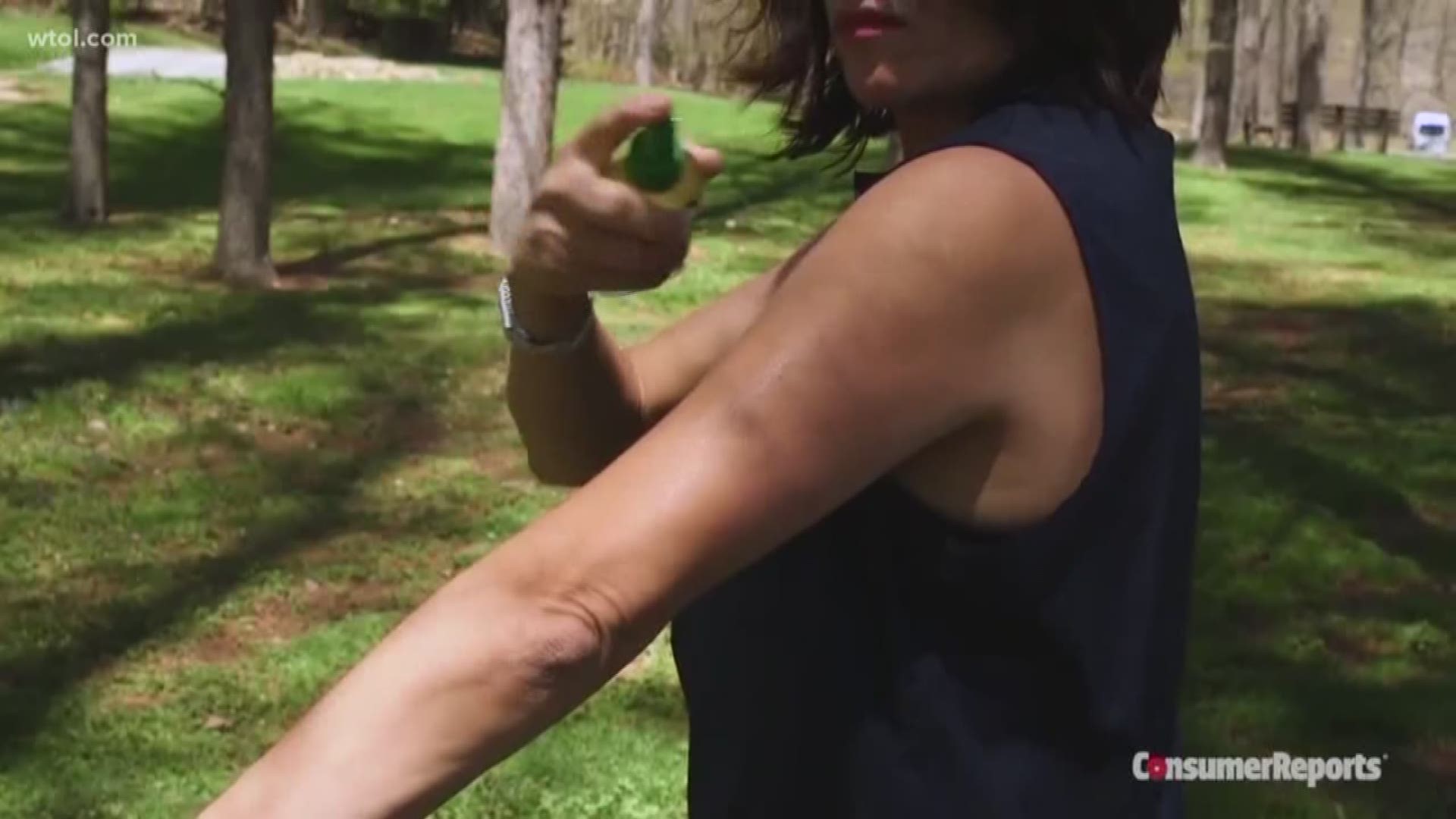LUCAS COUNTY, Ohio — The Toledo Lucas County Health Department confirmed the first human West Nile virus death in Lucas County for 2019.
The 68-year-old man passed away after being hospitalized for encephalitis.
West Nile virus is passed onto humans through mosquitoes.
"Although we're getting closer to the end of summer, you can still be at risk of getting West Nile virus," health commissioner Eric Zgodzinski said. "It's important for everyone to continue taking precautions such as wearing insect repellent and staying indoors between dusk and dawn."
Most people infected with WNV have no symptoms of illness and never become ill, according to the health department. However, illness can occur three to 15 days after an infected mosquito bite and cause symptoms of fever, headache and body aches.
Health department officials said the disease can affect all ages, but people over 50 years old and those with a chronic disease such as heart disease or cancer may be at an increased risk for complications, such as encephalitis or meningitis. For that reason, people who experience high fever, confusion, muscle weakness, severe headaches or a stiff neck should see a doctor right away.
Health department officials said the most effective way to prevent becoming infected with WNV is to follow the three R's:
- Remove standing water around your home in pet bowls, flower pots, old tires, baby pools and toys and remove leaves and debris from gutters so water doesn't accumulate. Pools of water allowed to stagnate for three or four days become breeding grounds for mosquitoes.
- Repel mosquitoes when outdoors between dusk and dawn by applying insect repellent with DEET and wear light, lose fitting clothing. If you don't like DEET there's other options, just make sure you're using a specific product that is mosquito repellent.
- Repair or replace torn screens on doors and windows
Visit the CDC's website for more information.
In our area, the chances of being bit by a mosquito carrying West Nile are pretty high, but dying from the virus is unlikely.
It's important to avoid any unnecessary risk. The health commissioner said the number one best thing you can do is to prevent getting bitten by mosquitoes in the first place.
There is currently no vaccine you can get to prevent West Nile Virus.
Health department officials said that most people have no symptoms, and don't get sick, or even if they do, it may not seem any different than the flu or a headache. Reasons why you get sick from a mosquito bite can vary and your chances can increase if your immune system is compromised.
Now that a man has died from the virus, the public is more concerned, but the focus at the health department remains a constant.
"It's still a concern, it's no greater concern than it was at 7 this morning. We have to take precautions so we don't get bit by mosquitoes," Zgodzinski said.
Removing yourself from the situation is also a good option. Maybe you've been enjoying the warmer weather, but so are the bugs, especially at dusk and dawn. If you have to be out at say that morning bus stop, cover up and use mosquito specific bug spray. Remember, if you are staying inside but keeping the windows open, you want to make sure your screens are intact, and the bugs stay outside.
"If you feel you need to call your doctor, call them, that's what they're there for. With my kids, I make sure that when they're not feeling good, we gauge that. If you have severe symptoms — you're really achy, you're really tired, you're not feeling right, that's the time that I would be calling the doctor," Zgodzinski said.
West Nile is the most common mosquito borne illness, but there are others like Triple-E and La Crosse encephalitis you can contract from a bite.
The Toledo Area Sanitary District is spraying for mosquitoes during peak hours, if you want to make sure they get to your neighborhood, give them a call (419) 726-7891 or visit their website.
RELATED: EEE virus: Should you be concerned?

